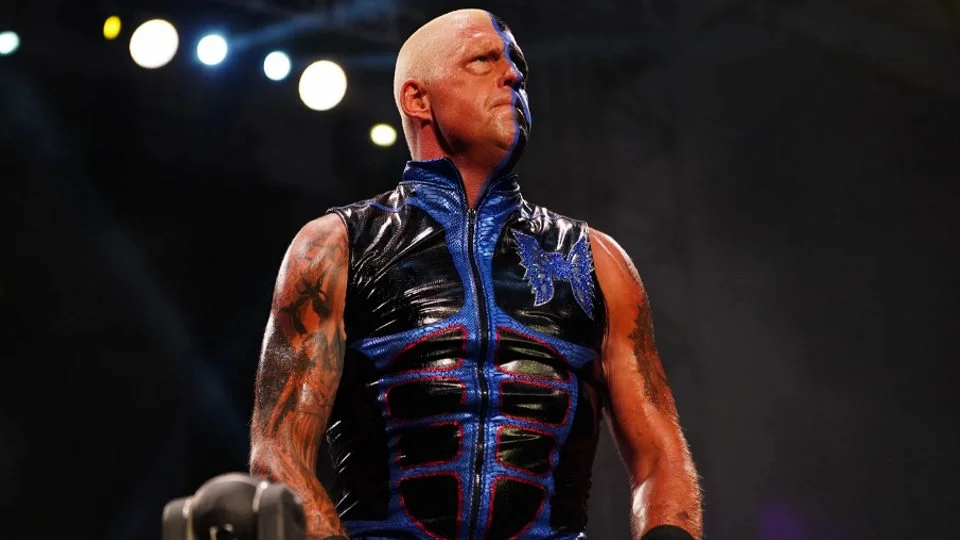
On a recent episode of his “Grilling JR” podcast, WWE Hall of Famer Jim Ross discussed Dustin Rhodes’ departure from WCW over a violation of the no-blood policy.
You can check out some highlights from the podcast below:
On Dustin Rhodes getting fired from WCW because there was blood in his King of the Trailer match in 1995 during a time when WCW had a no-blood policy: “There was a specific edict from the home office with no gray area: no blood. Doesn’t need interpretation. No blood is no blood, at least at your own hand. And all those guys, what they were doing was typical, pro wrestling blood. And it didn’t get past the censors, shall we say. And the upper management people put a lot of pressure on Dusty to allow it to happen. I don’t think he allowed — I’ve called matches where there was blood that nobody ever talked about that just came up, or it worked, or it fit the moment or what have you. But this was just a direct — it was a refusal to follow orders.”
On whether the agent should get the heat for it: “Yeah, at least partially. At least partially. I wouldn’t have booked that match. It’s a gimmick match, there’s only a few things you can do. Back on a trailer, a hay trailer, is what it looks like to me. An old hay trailer. So no, I — there’s a good chance that whoever did violate the direct order would be let go. It’s like it just happened to WCW.”
On hearing about it: “Well, I didn’t — you know, there are so many rumors that go around. I wasn’t sure exactly the lay of the land there. Where they fired TFN (till further notice), or where they fired without pay, or basically put on suspension or three months or six months, or whatever the case may be. It’s not fair to suspend somebody for six months, and not pay them. But if you pay them then what good is what good is the penalty? It’s a tough situation. Sometimes you’re just better to cut your losses and move on, and then hopefully get the opportunity — just like Dustin did — to regroup and land on the street and another in another location. Another address.”
In a recent episode of the “Grilling JR” podcast, WWE Hall of Famer Jim Ross discussed the departure of Dustin Rhodes from WCW due to a violation of the no-blood policy. This incident occurred during a match called the King of the Trailer in 1995.
During this time, WCW had a strict policy against any blood in their matches. The policy was clear and left no room for interpretation. However, in the King of the Trailer match, there was blood, which violated the company’s rules. Ross explained that pro wrestling blood was a common occurrence, but in this case, it did not go unnoticed by the censors and upper management.
According to Ross, there was pressure from upper management to allow the bloodshed in the match. However, Dusty Rhodes, who was in charge at the time, refused to follow orders and allowed the violation to happen. This led to Dustin Rhodes’ departure from WCW.
When discussing who should take responsibility for the incident, Ross mentioned that the agent involved should bear some of the blame. As an agent, their role is to oversee and coordinate matches, ensuring they adhere to company policies and guidelines. Ross stated that he wouldn’t have booked the match in the first place due to its nature as a gimmick match.
Ross also discussed the aftermath of the incident. He mentioned that there were rumors circulating about the consequences faced by Dustin Rhodes. It was unclear whether he was fired indefinitely or placed on suspension without pay. Ross expressed his opinion that suspending someone for an extended period without pay is unfair, but paying them would undermine the purpose of the penalty. Ultimately, WCW decided to let go of Rhodes.
However, Ross highlighted that sometimes it is better to cut losses and move on. In Dustin Rhodes’ case, he was able to regroup and find opportunities elsewhere in the wrestling industry.
The podcast episode also featured a video embed of the “Grilling JR” episode titled “Becoming Goldust,” where listeners can find more insights and discussions on this topic.
Overall, the departure of Dustin Rhodes from WCW due to a violation of the no-blood policy shed light on the challenges faced by wrestlers and management in adhering to company guidelines. It also showcased the consequences that can arise when orders are not followed, even in the world of professional wrestling.
